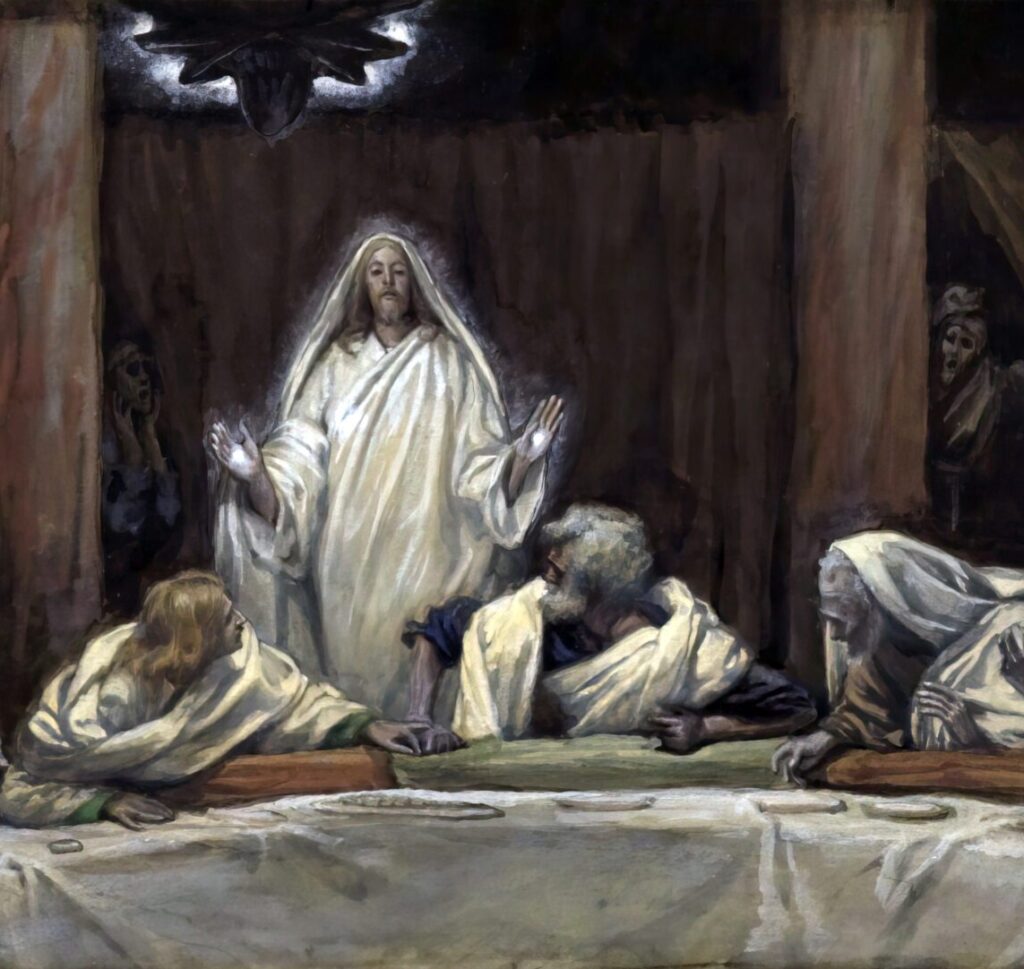Today’s first and second readings seem to contradict each other. In the Acts of the Apostles, Paul and Barnabas remind the other disciples that they would “undergo many hardships to enter the kingdom of God” (Acts 14:22). But in the second reading from Revelation, John says there will be “no more . . . mourning, wailing, or pain” (Revelation 21:4). These two sides of the Kingdom show how real our faith is. Life is frequently contradictory. A woman in labor moves from pain to joy in seconds after her child is born. She doesn’t forget the pain, but knows it is necessary for the joy of new birth. Only the artist knows how much effort and pain went into the creation of a painting, sculpture, or symphony.
That’s why Jesus in the Gospel talks of his coming death on the cross as the way that God will glorify him. Even God does not do things the easy way. Jesus didn’t send a stuntman to take his place on the cross. It was God who was born in poverty, in a time of high infant mortality (even higher when Herod tried to kill the Child). It was God who suffered from the Agony in the Garden through the Crucifixion.
Jesus tells us to love one another as he has loved us; he knows what it cost. And he also knew that his death on the cross would be the beginning of a way of love that would eventually lead to “no more death or mourning, wailing or pain.” We’re not there yet, but we know we are not alone in our suffering, for “God himself will always be with them” (Revelation 21:3).
Tom Schmidt, Diocesan Publications


